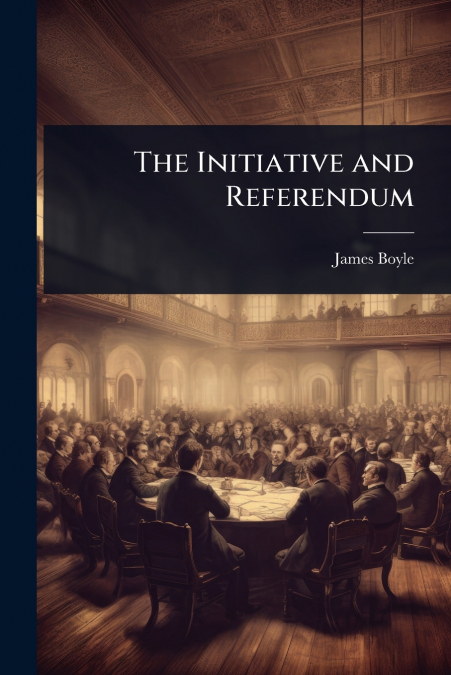
James Boyle
In 'The Initiative and Referendum: Its Folly, Fallacies, and Failure,' James Boyle delivers a critical analysis of direct democracy through initiative and referendum processes. Boyle argues that these mechanisms, often touted as improvements to representative government, are fundamentally flawed and prone to failure. The book dissects the theoretical underpinnings of the initiative and referendum, examining their practical application and unintended consequences. Boyle contends that these processes can lead to poorly considered legislation, manipulation by special interests, and the erosion of constitutional principles. He advocates for a more nuanced approach to governance, emphasizing the importance of informed deliberation and responsible leadership. This work serves as a cautionary tale for policymakers and citizens alike, urging a reevaluation of the role of direct democracy in modern society. Boyle’s insights remain relevant for anyone interested in the complexities of democratic governance and the challenges of ensuring effective and equitable policymaking.This work has been selected by scholars as being culturally important, and is part of the knowledge base of civilization as we know it. This work was reproduced from the original artifact, and remains as true to the original work as possible. Therefore, you will see the original copyright references, library stamps (as most of these works have been housed in our most important libraries around the world), and other notations in the work.This work is in the public domain in the United States of America, and possibly other nations. Within the United States, you may freely copy and distribute this work, as no entity (individual or corporate) has a copyright on the body of the work.As a reproduction of a historical artifact, this work may contain missing or blurred pages, poor pictures, errant marks, etc. Scholars believe, and we concur, that this work is important enough to be preserved, reproduced, and made generally available to the public. We appreciate your support of the preservation process, and thank you for being an important part of keeping this knowledge alive and relevant.